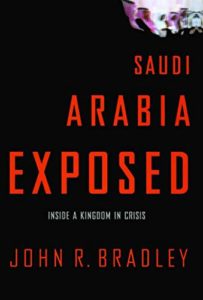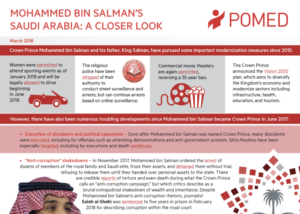A bipartisan group of 20 senators have forced an investigation into the fate of Jamal Khashoggi – a Saudi journalist and U.S. resident who has been missing for more than a week and is now at the center of a diplomatic firestorm, reports suggest.
While angry members of Congress likely won’t cause the administration to end decades of close security ties with Saudi Arabia, the initiation on Wednesday of possible sanctions under the Global Magnitsky Human Rights Accountability Act indicated the depth of concern on Capitol Hill over Khashoggi’s case, The Washington Post adds.
Khashoggi, who may have been murdered and cut into pieces in the Saudi consulate in Istanbul, incorporated Democracy for the Arab World Now (DAWN) in January, The Daily Beast reports:
The group …..was incorporated in the state of Delaware as a tax-exempt organization in January of this year … Its members also planned to advocate to corporate leaders, policymakers, journalists, and think tanks on behalf of democracy in the Middle East. The group intended to push for democratic change even when it ran counter to American foreign policy goals.
 The group was designed to “support Islamist gains in democratic elections throughout the region,” according to John R. Bradley, the author of Saudi Arabia Exposed: Inside a Kingdom in Crisis.
The group was designed to “support Islamist gains in democratic elections throughout the region,” according to John R. Bradley, the author of Saudi Arabia Exposed: Inside a Kingdom in Crisis.
“Bin Salman’s nightmare of a Khashoggi-led Islamist political opposition was about to become a reality,” he writes for The Spectator. “The fate of Khashoggi is the latest sign of what’s really happening inside Saudi Arabia. For how much longer will our leaders look the other way?”
Any government that thinks it cannot survive thoughtful criticism telegraphs to the world that it thinks itself shaky indeed, says Elliott Abrams, senior fellow for Middle Eastern studies at the Council on Foreign Relations.
When the revolutionary regime in France in 1804 executed the Duke d’Enghien, one commentator observed: “It’s worse than a crime, it’s a mistake.” Killing Khashoggi would be both: a great crime and a great mistake, he writes for The Washington Post:
 It suggests either a regime without internal procedures and controls, or one in which an impulsive decision to kill a critic living in Washington cannot be contradicted or even questioned. The Saudis may not realize what a wide impact that conclusion will have on governments and on investors, but it will be profound. All Saudi decision-making will come into question, and the government’s reliability as a partner will be rendered uncertain.
It suggests either a regime without internal procedures and controls, or one in which an impulsive decision to kill a critic living in Washington cannot be contradicted or even questioned. The Saudis may not realize what a wide impact that conclusion will have on governments and on investors, but it will be profound. All Saudi decision-making will come into question, and the government’s reliability as a partner will be rendered uncertain.
The alleged killing of Khashoggi is a death blow to all those hopes and expectations [of modernization], unless the Saudis can somehow explain what happened and accept full responsibility, adds Abrams, a board member of the National Endowment for Democracy:
- First, this is not the only recent event that raises questions about decision-making in Riyadh. This year, the planned initial public offering of shares in the state oil company Aramco appeared and disappeared like a desert mirage, suggesting that the crown prince’s economic plans may not have been realistic.
- Second, the reported Khashoggi killing came just a few weeks after the bizarre Saudi overreaction to criticism from Canada, which took the form of a single tweet on human rights issues.








